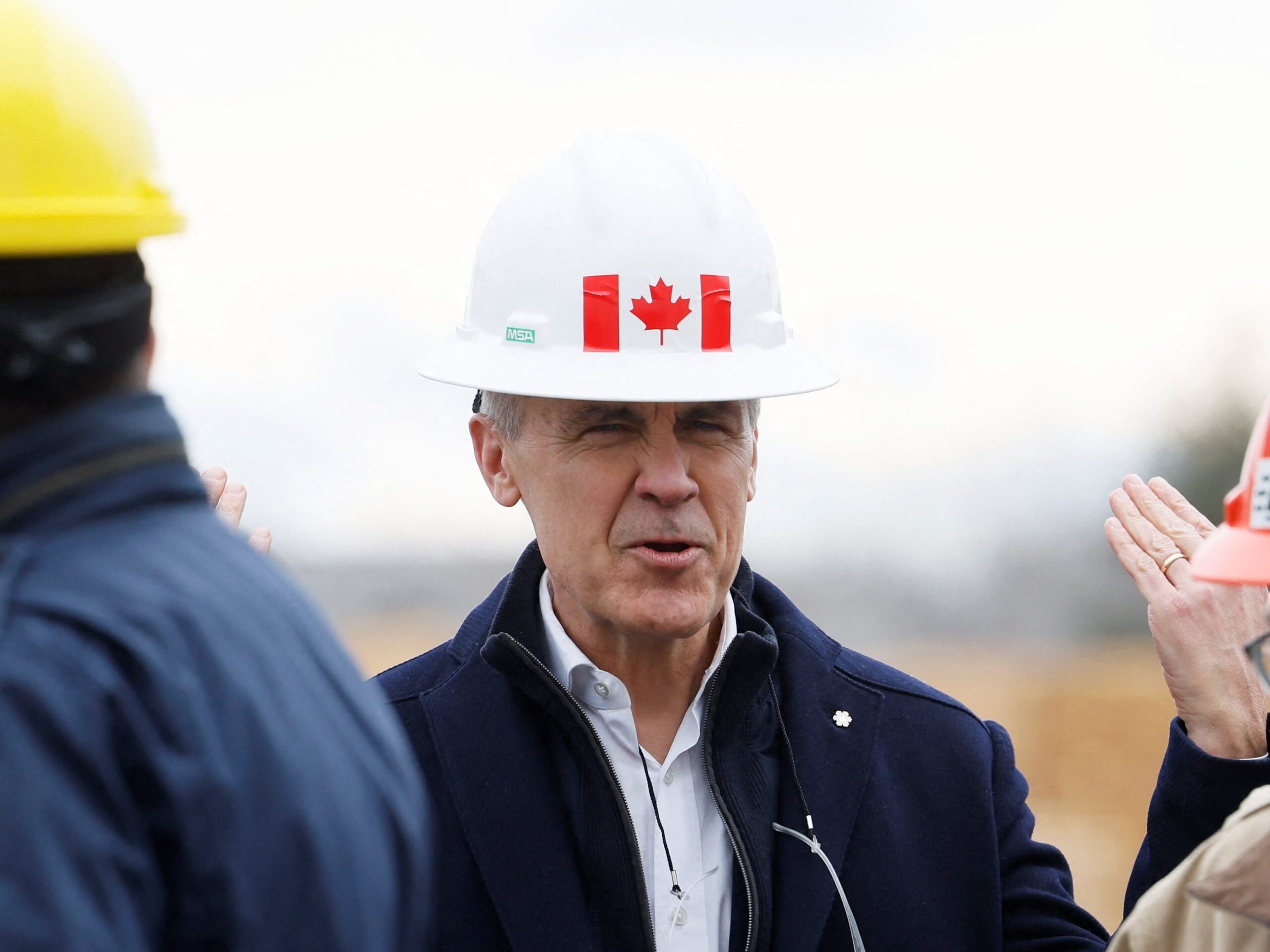Business
Carney Government’s GST Rebate Falls Short on Housing Affordability

Prime Minister Mark Carney has unveiled a proposed Goods and Services Tax (GST) rebate aimed at easing housing affordability in Canada. While the initiative is a positive move, experts caution that it does not adequately address the broader challenges of the housing market. The current approach primarily targets a narrow segment of new homebuyers, which may limit its overall effectiveness.
Analyst Austin Thompson from the Fraser Institute highlights that taxes on new homes, including the federal GST, play a significant role in the ongoing housing affordability crisis. The legislation being proposed by the Carney government would offer a full GST rebate on new home purchases, but only for first-time buyers purchasing primary residences priced below $1 million. A partial rebate would extend to homes valued up to $1.5 million, but this framework appears to exclude many prospective buyers and does not sufficiently alleviate the tax burden on rental properties.
Currently, Ottawa provides some GST relief for new housing, including partial rebates for homes priced under $450,000 and full rebates for small-scale rental units valued under that threshold. However, as housing prices soar, many new homes and rental projects still face the full impact of the GST.
The proposed rebate’s criteria raise concerns. By limiting eligibility to first-time buyers and primary residences, the government overlooks the dynamics of the housing market. For instance, when a retiring couple downsizes into a new condo, they free up their previous home for others, benefiting the entire market.
Moreover, restricting GST relief to primary residences fails to alleviate the tax burden on rental properties, a critical area where demand continues to grow. Expanding the rebate to cover rental properties could reduce costs and stimulate construction, ultimately providing more options for renters.
In major cities such as Toronto and Vancouver, where housing prices are especially high, the limitations of the proposed rebate are glaring. According to statistics, in the first half of 2025, 31.8 percent of new homes sold in Toronto and 27.4 percent in Vancouver exceeded $1 million. As it stands, the proposed GST rebate is projected to cover only a small fraction of the housing units expected to be completed in 2026. The Parliamentary Budget Officer estimates that of the 237,324 housing units projected for that year, only 12,903 (or 5.4 percent) would qualify for the new rebate.
Financially, the proposed GST rebate will cost Ottawa an estimated $390 million annually. However, expanding the rebate to encompass all new homes priced under $1.3 million would require a budget of approximately $2 billion. While this presents a significant financial commitment, it could yield more meaningful improvements in housing affordability compared to the government’s current spending plans.
Currently, the government intends to allocate $3 billion each year to the Build Canada Homes initiative, which critics argue could compete with private builders for limited construction resources. Additionally, another $1.5 billion is earmarked annually to subsidize municipal fees on new housing projects—a policy that merely shifts costs rather than addressing the underlying issues.
The question of whether to exempt new homes from the GST remains contentious. While the tax is an efficient revenue source for the federal government, it may lead to increased taxes in other areas to compensate for lost revenue through rebates. Nonetheless, tax relief is generally viewed as a more effective strategy for enhancing housing affordability compared to the high costs associated with alternative programs.
In summary, while the Carney government’s proposed GST rebate represents a step forward, its limited scope is unlikely to significantly impact housing supply or affordability. As Ottawa considers spending billions on various housing initiatives, a broader GST rebate may present a more effective solution for assisting Canadian homebuyers and addressing the ongoing housing crisis.
-

 Science3 months ago
Science3 months agoToyoake City Proposes Daily Two-Hour Smartphone Use Limit
-

 Top Stories3 months ago
Top Stories3 months agoPedestrian Fatally Injured in Esquimalt Collision on August 14
-

 Health3 months ago
Health3 months agoB.C. Review Reveals Urgent Need for Rare-Disease Drug Reforms
-

 Technology3 months ago
Technology3 months agoDark Adventure Game “Bye Sweet Carole” Set for October Release
-

 World3 months ago
World3 months agoJimmy Lai’s Defense Challenges Charges Under National Security Law
-

 Lifestyle3 months ago
Lifestyle3 months agoVictoria’s Pop-Up Shop Shines Light on B.C.’s Wolf Cull
-

 Technology3 months ago
Technology3 months agoKonami Revives Iconic Metal Gear Solid Delta Ahead of Release
-

 Technology3 months ago
Technology3 months agoApple Expands Self-Service Repair Program to Canada
-

 Technology3 months ago
Technology3 months agoSnapmaker U1 Color 3D Printer Redefines Speed and Sustainability
-

 Technology3 months ago
Technology3 months agoAION Folding Knife: Redefining EDC Design with Premium Materials
-

 Business3 months ago
Business3 months agoGordon Murray Automotive Unveils S1 LM and Le Mans GTR at Monterey
-

 Technology3 months ago
Technology3 months agoSolve Today’s Wordle Challenge: Hints and Answer for August 19









